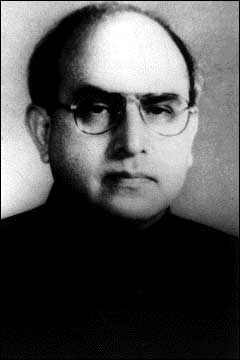![]()
Sardar Farooq Ahmad Khan Leghari [Born 1940]

Sardar Farooq was born at D.G. Khan on May 29, 1940. He did his graduation from Aitchison College, Lahore and earned M.A. P.P.E. from Oxford University in 1963. In the same year, he joined the Civil Service of Pakistan, which he left ten years later in 1973, on invitation of Prime Minister Zulfikar Ali Bhutto to join the PPP.
In 1975, Farooq Leghari was elected Senator. In the 1977 election, he won the National Assembly seat and was appointed Federal Minister for Production. In 1978, he was appointed Secretary General of the PPP and participated in the struggle for the restoration of democracy. He remained Secretary General till 1983 and underwent four years of imprisonment during the Martial Law.
Farooq Leghari was elected member of both National and Punjab Assembly in the 1988 elections, and was appointed Federal Minister for Water and Power from December 1989 upto August 1990. In October 1990 elections, he was re-elected member of the National Assembly and became Deputy Leader of the Opposition in the Assembly.
In the caretaker cabinet in 1993, Farooq Leghari held the portfolio of the Federal Minister for Finance. During this period he presided over the Twenty First Islamic Conference of Foreign Ministers held in Karachi from 25-29 April, 1993. In the October 1993 general elections, he won the National Assembly seat and was appointed Federal Foreign Minister.
Farooq Ahmad Khan Leghari was elected President of Pakistan on November 13, 1993 and took oath the same day for a term of five years.
In February 1997, Mian Nawaz Sharif, a major political opponent of Mr. Leghari was elected as the Prime Minister. With the passing of the 13th Amendment, a direct collision course with the Prime Minster was set. With the dilution of PPP’s role in the assemblies, chances of Mr. Leghari’s re-election as President in 1998 had also become bleak. On December 2, 1997, Mr. Farooq Leghari resigned as the President of Pakistan.
In August 1998, Mr. Leghari formed his own political party called the ‘Millat Party’, and heads it to-date.